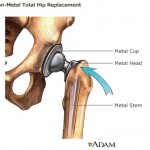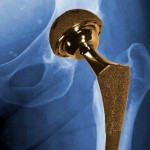
That settlement will reportedly be about $2.2 billion, and include about $400 million in criminal fines.
But the settlement won’t be the end of Johnson & Johnson’s legal troubles. It’s still facing thousands of lawsuits from plaintiffs alleging that the company’sread more.... --> continue reading...

 The New York Times reports that the U.S. Food and Drug Administration conducted a wide-ranging surveillance operation against its own scientists.
The New York Times reports that the U.S. Food and Drug Administration conducted a wide-ranging surveillance operation against its own scientists. The federal Food and Drug Administration has unveiled a plan to track high-risk medical devices.
The federal Food and Drug Administration has unveiled a plan to track high-risk medical devices. According to Bloomberg, Johnson & Johnson continued selling a vaginal mesh implant for nine months after the U.S. Food and Drug Administration ordered the company to stop.
According to Bloomberg, Johnson & Johnson continued selling a vaginal mesh implant for nine months after the U.S. Food and Drug Administration ordered the company to stop.